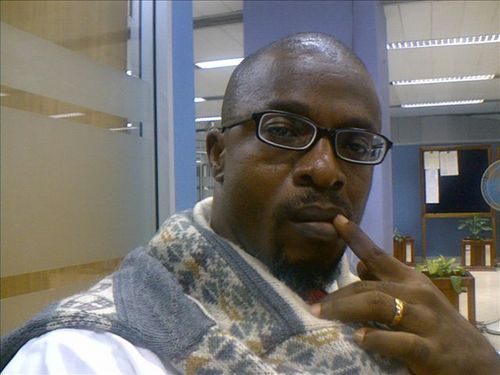Global Issues
How This Coronavirus Pandemic Is Changing Everything -By Uddin Ifeanyi

COVID-19 has taken a severe toll. Deaths? Yes. And across the globe. “Older victims with underlying conditions are most susceptible”, we are told. But teenagers and children have died too. Men seem to be at greater risk than women. Yet, as with the confusion over the utility of face coverings, how much of these skew in the statistics owe to faults with how testing for the virus has been conducted thus far? The virus has cost more in the incapacitation of the ailing. But nowhere are its effects felt more than among the growing swathes of populations across the world whose governments have opted to lockdown their different economies as speed bumps in the path of the virus’ spread.
Globally, the hopeful money is on a quick route to a treatment, prophylactic, or vaccine. For in the absence of any of these, a second wave of infections will inevitably follow the lifting of the current lockdowns. And, Yes! We can’t keep the world locked in forever. The resulting damage would be hard to quantify as the very prospect is difficult to contemplate. Even then, there are ready numbers. Currently, the harmful side-effects of the coronavirus have had the most immediate showing in the loss to businesses. Airlines, the hospitality and retail sectors largely have seen their custom evaporate. Governments may be trying to lockdown bankruptcies. But the longer household spending is cooped up at home, the slimmer the short- to medium-term chances of these businesses staying alive.
Then, there’s the matter of the intervention – what the International Monetary Fund (IMF) describes as the “unprecedented policy actions undertaken by central banks and governments worldwide”. The sheer size alone of the efforts by monetary authorities globally to put a floor on the economic consequence of the virus is mind-boggling. As is the facility with which the U.S. Federal Reserve has morphed into the global lender of last resort. What about the close to US$10 trillion which governments, globally, have committed thus far to tiding domestic demand along, as the scientific community searches for a cure? Arguably, the only thing bigger than this is the erosion of civil liberties that this new definition of government carries with it. Without question, neither markets nor our communities have the arsenal or the organisation to confront a challenge this existential and widespread.
Still, that doesn’t obviate the need today to raise concerns about the size of post-COVID-19 states. Nor to continuously repeat the reasons why the leviathans of yore were circumscribed by constitutions which prioritised people’s rights. Yet, one other consequence of the virus has been the ease with which ordinary people have turned ornery – peddling untruths and half-baked conspiracy theories all over social media. Why? Fear? Both the uncertainty around the disease and the haphazard means of contracting it make this a real worry. How about idleness as a plausible cause? There’s that passage in Jimmy Cliff’s “Sitting In Limbo” that comes near enough to capturing the zeitgeist: “Sitting here in limbo/Waiting for the dice to roll/Sitting here in limbo/Got some time to search my soul”. Trouble is, for the many for whom the dice has taken too long to roll, the recent close encounter with their soul has been ugly.
Searching for silver linings in all this gloom? Everyone agrees that the scars from this disease will linger long after it’s been contained. Just as many fear that it may change society irreparably. For instance, we may not rediscover the hug. We may even come to yearn for the limp, and slightly wet handshake. And who knows, the thuggish elbow-bump might turn into a thing. Nonetheless, one of the biggest changes to life as we’ve come to know it will be to work – how we will conceive of it, and how it will be organised. Blue collar workers have been most vulnerable to the current factory shutdowns. Their white collar colleagues, on the other hand, have retired to the safety of their homes, typing furiously on their personal computers, and collaborating via internet based platforms.
“Working from home”, it is called. And its fan base is on the rise. But as with everything associated with COVID-19, this concept is far more complicated than it seems on first encounter. While it is conceivable that businesses might, following the global recovery from this pandemic, save money by arranging for large parts of their workers to work from home, this will only happen because large parts of that costs that these businesses will cut, then shift on to the workforce. Even as we now worry that labour shared off the last economic boom far less than capital appropriated – and far less than has so far been the norm – it would be a huge ask for workers to bear these new costs: Including that of keeping homes warmer or cooler that would otherwise be unoccupied were the residents at work. Besides, what happens to the subsidised lunch break in the staff canteen? In other words, supplies that the office once provided may, in future, have to be sourced by staff working from home.
COVID-19 will change a lot, therefore. But by diminishing the rights of citizens and raising costs to workers, it would not have changed things for better!
Uddin Ifeanyi, journalist manqué and retired civil servant, can be reached @IfeanyiUddin.


















